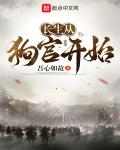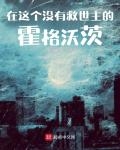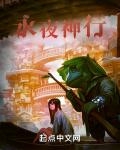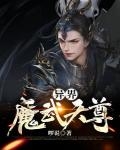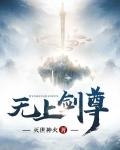Chapter 170: The evolution of the Chinese race, sweeping across all tribes and dividing the world into three parts!
Listening to Su Che's description, Wang Meng couldn't help but feel a surge of emotion for a moment.
However, he was a steady man after all, and did not completely immerse himself in the beautiful scene described by Su Che. Instead, he immediately thought of a very practical problem, which was also a problem that could not be avoided.
That is, this pair of Hu Tui Enling can be used to deal with other Hu people, but... what about the Di people?
Fu Jian was a Di people, and the Qin Dynasty was ultimately a Di regime. This Hu Tui En Order could be applied to other Hu people, but if it was applied to the Di people, it would obviously be inappropriate.
Wang Meng hesitated for a while, and finally asked the question.
"If so, what about the Di people?"
Wang Meng looked at Fu Jian with a firm gaze. He wanted to know Fu Jian's attitude and thoughts.
Su Che heard this but didn't take it seriously.
This is indeed a problem.
For Fu Jian himself, this might be an unsolvable problem and he would have no idea how to deal with it.
But for Su Che, this was not a problem at all.
He said without hesitation: "This is easy to solve. From now on, the Di people will integrate into the Han people and intermarry with each other. There will be no distinction between Di people and Han people. We are all Han people. In this way, won't the problem be solved?"
Hearing the Lord's nonchalant tone, Wang Meng widened his eyes in shock and looked at Su Che in disbelief.
It is indeed a good idea for the Di people to completely integrate into the Han people - but only for the Han people.
Since ancient times, the Han people have undergone many assimilation and integration. No matter what race they are, as long as they intermarry and assimilate with the Han people, they will eventually be completely assimilated and their original imprint will disappear.
This is the unique ability and charm of the Han ethnic group, which is something that other races simply do not possess.
This assimilation began long before the Han Dynasty.
The predecessor of the Han people in the Central Plains was the Yanhuang tribe and the Huaxia people.
After that, Chiyou was defeated. After Chiyou's defeat, most of the Jiuli tribe was integrated into the Yanhuang tribe.
This was the earliest assimilation in ancient times.
After that, the Xia Dynasty continued to conquer the Dongyi people, and eventually the Huaxia ethnic group gradually formed.
At the end of the Xia Dynasty, the Shang Dynasty destroyed the Xia Dynasty, and the Huaxia people continued to integrate.
During the later Warring States period, there was also an integration of various regions.
For example, after being conquered by the Qin people, the Yiqiu people began to farm and fight like the Qin people. There was no difference between them and they became Qin people.
The same thing happened afterwards.
For example, among the Xianbei, at first only the Han people were allowed to farm and the Xianbei people were allowed to fight. Later, the Han people were also allowed to serve as soldiers. Many Xianbei people thought that farming was better, so they all farmed and fought together, and finally they all became Han people.
Similar assimilation is common throughout history.
With constant assimilation and integration, the essence of the Chinese people has never changed.
In this world, only the Han, a unique race, can continuously assimilate other races while still maintaining their own original features.
Other races, without exception, basically rely on "religion" to form racial cohesion.
Without religion, almost all races would fall apart in an instant and would find it difficult to survive.
The only difference is that the Han people are a different race. Even without relying on religion, they still have a strong cohesive force.
also.
There is another reason why Su Che chose to allow the Di people and the Han people to completely integrate. That is - the Di race would have slowly dissipated in the long river of history and completely integrated into the Han nationality, with a small part evolving into the Baima Tibetans.
Historically, along with the Di people, the "Chu people" were also completely integrated into the Han nationality. During the Spring and Autumn Period, the phrase "I am a barbarian" was not self-deprecating. The Chu people were indeed considered a barbarian tribe.
But in the end, the Chu people also disappeared in the long river of history and integrated into the Han ethnic group.
In addition, there were the "barbarians" in the land of Bashu, including the Ba people and the Shu people. These two types of people were also assimilated into the Han nationality.
In addition to the land of Bashu, many of the "barbarians" in the southwest and Yunnan and Guizhou also integrated into the Han nationality.
The lands of Shanwu and Yue were also integrated into the Han people and became part of the "Sinicization".
Actually, this is happening right now.
Because the Five Barbarians occupied these places in the north, it led to the "migration of the elite to the south", which directly changed the genes of ordinary people in the Shanwu area.
Because of these reasons, Su Che did not have any psychological burden in completely integrating the Di people into the Han people. Integration would have to happen sooner or later anyway, so what difference did it make whether it was integrated earlier or later?
Moreover, it was not as difficult for the Di people to integrate into the Han people as it was for other ethnic groups.
Although the Di people are also one of the Hu people, unlike other Hu people, the Di people are an agricultural civilization.
Therefore, if you want to integrate into the Han people, it is very simple and the connection can be seamless.
However, such words sounded like thunder to Wang Meng!
What kind of treasonous words are these?
A single word could determine the survival of an entire clan. If the Di nobles got to know about this, the consequences would be disastrous!
Even if the person who said this was Fu Jian, the Emperor of Qin!
Even if it was him, if he was resisted by all the Di people, the consequences would still be serious!
Wang Meng subconsciously glanced around and couldn't help but said, "Your Majesty, why would you make such a joke?"
"Then does the Prime Minister have a better solution than this?" Su Che asked back.
"Even if Your Majesty has this idea, you must not say it out loud..." Wang Meng said helplessly, "Besides, this kind of thing cannot be rushed. This is a century-long event, and it cannot be changed overnight or with a single policy or decree."
"If your majesty has this idea, you still need to think about it carefully."
"Don't ever say something like this again, and don't ever say it to anyone else..."
Wang Meng warned earnestly: "If these words are leaked to others, the consequences will be disastrous!! "
Su Che smiled and said, "Of course, we are close friends, so we will say it directly."
Wang Meng nodded heavily. A question that had been hanging in his mind for a long time could finally be completely put aside.
If the Di people and the Han people merged and no longer had any contact with each other, then the Di people's Qin Empire could also be called the "orthodox regime of China" and would no longer be a regime led by the Hu people!
In the Eastern Jin Dynasty, the so-called orthodoxy was nothing at all. It was just a regime composed of a bunch of aristocratic families.
These aristocratic families were formed very early. They were not at their peak during the Western Han Dynasty. It was not until they invested in the Eastern Han regime represented by Liu Xiu that they gradually became influential aristocratic families.
After that, the Eastern Han Dynasty fell, but they were still present during the Three Kingdoms period. They continued to exist during the Cao Wei, Western Jin, Eastern Jin, Southern and Northern Dynasties, and finally to the Sui and Tang dynasties.
Whether the dynasty rises or falls has little to do with them.
Their essence is parasites on the dynasty, and it doesn't matter who is the emperor.
As long as the emperor wants to govern the world, he must rely on them and share the world with them.
Such a situation.
Things changed until a certain person who failed the imperial examination appeared.
Having seen through the darkness of officialdom and having had enough of the so-called imperial examinations, the candidates who failed the examinations decided to rebel.
After the rebellion, this imperial examination failure set his sights on those wealthy and powerful families, which directly brought them endless disasters and almost led to their complete destruction.
At this moment, Wang Meng, who came from a humble family, also looked down upon the aristocratic families of the Eastern Jin Dynasty - could these aristocratic families, the monopolists of interests, represent the orthodoxy of China?
No!
The orthodoxy of China has never been in the hands of these aristocratic families.
But it lies in the millions and countless Chinese people.
Whoever can rule for these Chinese people and bring them health and prosperity is the orthodox one!
Afterwards, Wang Meng had a long talk with Su Che. The two exchanged their views and found that they were surprisingly consistent.
Wang Meng also discovered that his monarch seemed to have changed a little compared to before, and he became less pedantic!
I have to say, this change is very good.
After Wang Meng said goodbye and left, Su Che sat in the upper seat again, thought for a while, and then opened the map.
This huge map shows the distribution of power in the world today.
The Former Qin represented by Fu Jian occupied the Guanzhong area in the pre-Qin period. Under the governance of Wang Meng, the area was full of vitality and everything flourished.
However, looking around the map, Former Qin was surrounded by enemies on all sides.
To the north there was the Xianbei Tuoba clan regime with its capital in Pingcheng, as well as other tribes.
In the west, there was the Former Liang regime of the Han Zhang family, the Qiuchi regime of the Di Yang family, and the Tuyuhun group.
To the east was the Xianbei Murong clan regime of the Former Yan, whose capital was Yecheng.
In the south, there was the Sima regime of the Eastern Jin Dynasty with Jiankang as its capital.
There are also some separatist forces that appear and disappear from time to time.
Neither Fu Jian nor Wang Meng had the idea of staying in Guanzhong or dominating a corner of the country.
Therefore, it is imperative to recover all those areas that are filled with countless chaos.
The first step is to unify the entire north.
The second step is to attack the entire south and unify the country.
The third step is Fu Jian’s ultimate ideal of “unifying the world and saving the people”!
Staring at the map, Su Che couldn't help but smile: "This is... another trip eastward!"
This is the nth time he has gone out?
He had gone east once before when imitating Emperor Qin Shi Huang.
Later, when he imitated the King of Chu Chen Sheng, he occupied the Guanzhong area and successfully went east.
I didn’t expect… that this would happen for the third time.
I have to say, fate is such a wonderful thing.
only.
This time, Su Che would no longer be as soft-hearted as Fu Jian and give those foreign leaders and nobles a chance.
It is actually easy to understand why Fu Jian did that.
Just like the autonomous region that Su Che will establish later, this is the most convenient and quickest way to maintain local stability.
But the problem is that if the military power is also given away, it will be a very serious problem.
Fu Jian always believed that as long as he was honest with others, and others were also honest with him, if communication between people were really that simple, then there would be no fighting and war in this world.
Everyone will stand from their own perspective and do things that benefit themselves, and many times even their ways of thinking are completely different.
It is naive to think that you can convince others by being honest with them.
"Xiongnu, Wuheng, Xianbei..." Su Che looked at the targets on the map carefully and made the next battle plan: "These are the first targets."
"First, let's bring out the military merit system."
Although the current Qin Dynasty also has its own military merit system, the gap between it and the military merit system of the pre-Qin period is really too huge.
The current military achievements are so stingy, and the various rewards are not even up to par - it is unrealistic to expect people to work hard for such a small amount of money a month.
The military merit system of the pre-Qin period offered real and rich rewards, and it was an opportunity to change one's destiny.
Although these are methods of the ancients, they are still applicable today !
Previously, Wang Meng had proposed to follow the example of the pre-Qin period and adopt a military merit system.
But this proposal was rejected by Fu Jian.
The reason is very simple. This directly affects the interests of many Di nobles. They have limited land and channels for advancement. If they adopt the military merit system, they will encounter a lot of resistance and will be faced with many difficulties.
In addition, this plan also largely violates Fu Jian's concept of "ruling the world with benevolence and virtue" and will turn Qin into a militaristic country. More wars will inevitably cause more deaths and hatred.
This is something he absolutely does not want to see.
But Su Che didn't think so.
If you want to achieve ultimate success, some sacrifices are inevitable.
Fu Jian wanted to reform, but was afraid of bloodshed. How could he succeed?
Any change that does not involve bloodshed is not called change, nor is it real change.
Only change that comes from blood and fire is real change.
As expected, when the military merit system was introduced, all the Di nobles in the court opposed it.
This policy directly affects their fundamental interests.
They directly stood up to oppose and questioned Su Che: "We once worked together with the late emperor to build a great cause. Those lands and rights were all granted to us by the late emperor. Do you want to take them back now, Your Majesty?"
Su Che sneered, jumped off the throne, pointed at these people's noses and cursed: "You old people are so short-sighted. You only know how to protect your own pitiful rights and are unwilling to look at the whole world!"
"Compared to the whole world, Guanzhong is just a small corner. You don't want to contribute to the struggle for the world, but just want to rest on your laurels and enjoy yourself. You are really like a person who sits in a well and looks at the world without knowing the big picture!"
"If you old Tribes are willing to follow and contribute to the battle, then do so."
"But if you want to object, then go see the late emperor!"
When these words were spoken, all the Di nobles were stunned.
Previously, Fu Jian's image was very gentle and elegant. Even when he was angry and wanted to kill someone, he was smiling with a dagger hidden behind his smile.
Normally, when facing the old ministers of the court, his attitude was very respectful. Even if he encountered opposition or even direct insults, he never got angry.
It is precisely this kind of approachable attitude that gives everyone the courage to act so arrogantly. They are not afraid of retaliation at all because they know His Majesty's character.
But now...
Su Che pointed at their noses and cursed them. To put it nicely, he called them "old dogs". To put it bluntly, he almost called them "old dogs"...
The huge contrast shocked them all, and they were all stunned into silence.
But it has to be said.
This kind of direct insult is very effective. After everyone fell silent, no one objected for a while.
But after a while, there was still one stubborn person, a veteran official with a very long history, who said slowly:
"If Your Majesty completely imitates the pre-Qin dynasty and leaves behind a reputation of tyranny, even if you seize the world with such means, it will not last long..."
As soon as these words were spoken, everyone looked at him and nodded secretly, saying, well said!
Well said! You said what they dared not say!
They are uneducated and don't know how to refute, they only know how to protest.
But it is reasonable to refute it from this aspect!
When Su Che heard this, he couldn't help but look at this man angrily. He had said that before, and this man dared to refute him like this. He really didn't take him seriously!
It is easy for a benevolent king like Fu Jian to encounter such a problem - you give others enough respect and want to win them over with virtue, but what you often get in return is contempt and disdain.
Even if you give them face, they won't want it!
Su Che ran over and knocked the old minister to the ground with one punch!
The old minister never dreamed that the king would personally come down, rush up and punch him directly, knocking him to the ground!
All the ministers were also confused!
They all stared with their eyes wide open, looking at this scene in disbelief. They started fighting right away. What was going on??!
It would have been fine if he had just cursed at me before, but now he actually hit me right away? !
"Your Majesty, as a king, how can you beat your subjects?"
"Your Majesty, you act according to the teachings of Confucius and Mencius and win people over with virtue. How could you beat up a minister, especially an old man?"
"Your Majesty, you are really going too far! This is not what a benevolent king should do!"
When this unprecedented thing happened, not to mention the old Di people, even the Han ministers in the court could not help it.
Wang Meng, who had been calm and silent, now looked at Su Che with disbelief.
Facing the condemnation of the ministers, Su Che waved his hand and said with disdain: "I am a barbarian!"
This is true. Fu Jian was a Di people, a true "barbarian", so doing this... seems to be okay?
But the problem is that before this, Fu Jian always won people over with virtue, treated people with courtesy, and was sincere to others. This time, the styles are completely different.
Then, Su Che pointed at the old minister and continued to scold him, "You old dog, you must be dissatisfied. Then I will make you convinced!"
"You said that if I follow the example of the Qin Dynasty, even if I gain control of the world in this way, it won't last long?"
"Then I would like to ask you, how did Emperor Gaozu of Han gain control of the world?"
"How long did the Han Dynasty last?"
"The Han Dynasty inherited the Qin system and used it to conquer and govern the world. What's the problem?"
"I told you not to sit in a well and look at the sky, but to look at the whole world. However, you are still so stubborn. Do you really not take my words seriously?"
"I usually treat you with courtesy, and you respond to me with this attitude?"
"Why are you being so weird in this court?"
After this questioning, the old minister who was punched blinked in confusion and was speechless for a moment.
He was the type of person who had some culture, but not much. He really didn't know how to respond to Su Che's words.
Just when he was about to admit his mistake.
Su Che waved his hand and asked, "Where is the court judge?"
"I am here!"
"Catch this old dog, lock him up, and make him reflect on his actions!"
"yes!"
After the old minister was dragged away, no one in the court dared to object.
Wang Meng, who witnessed this farce, was at a loss whether to laugh or cry for a moment.
Su Che waved his hand and continued to give orders: "Where is the Prime Minister?"
"I'm here!" Wang Meng immediately stepped out.
"I appoint you as the general, commanding 60,000 elite soldiers to attack the Liu clan of the Xiongnu, the Dugu tribe of the Wuhuan, and the Meiji cadres of the Xianbei!" Su Che said seriously.
"I obey your command!" Wang Meng nodded seriously.
There is one advantage of being a barbarian, which is that you don't need any reason to go on an expedition.
Just saying "I am a barbarian" is enough.
There really has to be a reason.
It is also possible.
That is, these Hu people did not treat the Han people as human beings and were cruel and unjust, so they raised an army to attack them.
However, the Di people are also Hu people, so it is not easy to raise this flag.
Once the military merit system was introduced, there was no doubt that the combat effectiveness of the Qin soldiers was raised to a higher level.
Within a month, Wang Meng's army swept through the Liu clan of the Xiongnu, the Dugu clan of the Wuhuan, and the Moyi clan of the Xianbei.
The whole process was very smooth and silky.
On the one hand, Wang Meng’s ability to command the army was very strong, and on the other hand, the army under the military merit system was too powerful.
The last aspect was that the people in these areas were suffering terribly, living worse than pigs and dogs. Naturally, they welcomed the Qin army with food and drink.
With the support of many factors, the Qin army was invincible.
Wherever you hit, it's like picking up land, don't take it too easy.
Because it is so simple.
So Wang Meng simply took a detour and led his army to attack the Jingzhou counties of the Eastern Jin Dynasty.
This battle was undoubtedly an easy victory, and more than 100,000 households, countless gold, silver, treasures, food and weapons were plundered.
Only then did Wang Meng feel satisfied and returned triumphantly.
A few months later, Wang Meng defeated the Qiang rebel leader Lianqi, and then defeated the Former Liang leader Zhang Tianxi, beheading 17,000 people.
Soon, without bloodshed, they captured Li Yan, a former general under the Zhang family, and seized the important town of Paohan.
Wang Meng is indeed an incredibly fierce man. He has won battle after battle along the way, which is extremely fierce.
Immediately afterwards, at Su Che's signal, Wang Meng's army attacked the interior of Qin and captured Fu Liu, the Duke of Jin and the brother of the tyrant Fu Sheng, who was attempting to rebel.
In just one year, all internal and external troubles were resolved.
Nowadays, the situation in the whole world is very clear.
Just like the Three Kingdoms period, the world is now divided into three parts.
The Qin State occupied Guanzhong and a large area.
The State of Yan occupied a large area near the Central Plains.
The Eastern Jin Dynasty occupied all of the southern regions.
What we need to do next is to stop attacking, but to recuperate, resume farming, and restore order to this land.
Previously, people in the Guanzhong region and the Qin State lived and worked in peace and contentment, but in other areas, things were not so good.
Everywhere I looked, there was devastation, abandoned farmland, and burning villages. I often saw corpses on the roadside, and I didn't know if they were leftovers from being eaten...
The population has shrunk significantly compared to before.
It was for this reason that Wang Meng, in order to fill the population shortage, went south to attack Jingzhou and captured more than 100,000 households.
More than 100,000 households means hundreds of thousands of people. The entire northern part of Jingzhou was emptied of its population. In many places and some cities, there was not even a single person left, and it became a ghost town!
Such a scene made General Huan Wen, who came to support the Eastern Jin Dynasty, dumbfounded. Fighting is fine, but why are they robbing civilians? !

